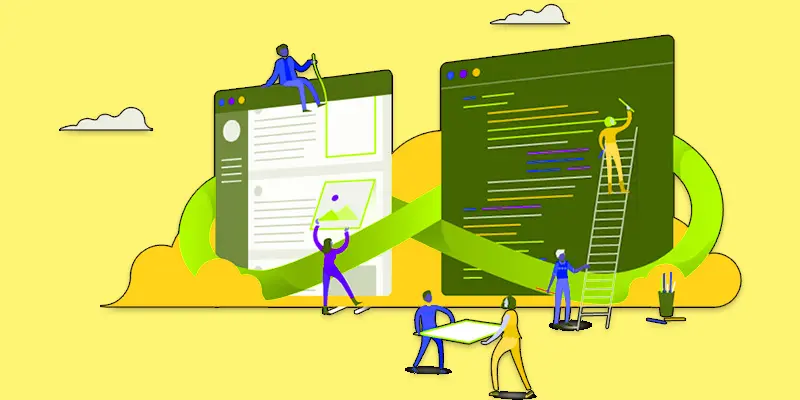Time Sharing Operating System Features and Characteristics
Published: 24 Jan 2025
Time Sharing Operating System Features
A time-sharing operating system (TSOS) is a game-changer in modern computing, allowing multiple users to share resources efficiently by dividing the CPU’s time into small slices. But have you ever wondered how your computer handles multiple tasks at once, like running a video call while downloading files?
For businesses and individuals, the struggle to manage multiple users on a single system without slowdowns or crashes is real—and that’s where TSOS shines. Imagine working in a shared office network where everyone’s tasks run smoothly, no matter how many people are logged in. From multitasking to quick response times, these systems are designed to deliver efficiency, fairness, and security. Curious to learn how? Let’s dive into the features and characteristics that make time-sharing operating systems so effective.

There are Many Key Features and Characteristics of Time Sharing Operating System
- Multitasking
- Multi-User Support
- Time Slicing
- Quick Response Time
- Scheduling
- Resource Sharing
- Fault Tolerance
- Fairness
- Efficiency
- Security and Isolation
- Scalability
Multitasking
Multitasking is when a computer can handle more than one task at the same time. It switches quickly between tasks, so it feels like everything is happening at once. For example, you can listen to music while typing an email without any issues.
Multi-User Support
Many users can use the same computer system simultaneously if it has multi-user support. Each user gets their own space, so they can work without interfering with others. Think of it like sharing a computer lab with your friends, but everyone has their own screen and files.
Time Slicing
Time Slicing is when the computer gives a small amount of time to each task. It quickly switches between tasks, so it feels like everything is happening at once. For example, your computer might switch between playing music and running a game, giving each a tiny slice of time.
Quick Response Time
Quick Response Time means the computer responds to your actions almost instantly. When you click a button or type something, it should happen without any delay. This makes using the computer feel smooth and fast, just like when a website loads right away after you click.
Scheduling
Scheduling is how the computer decides which task to do first. It organizes tasks in an order to make sure everything runs smoothly. Think of it like a teacher giving each student a turn to speak in class, so no one is left waiting too long.
Resource Sharing
Resource Sharing means letting multiple users or tasks share the same computer resources, like memory or printers. The computer makes sure each person or task gets what they need without slowing down. It’s like sharing a classroom printer—everyone can use it, but only one at a time.

Fault Tolerance
Fault Tolerance means the computer keeps working even if something goes wrong with one task. If one process crashes, the system doesn’t stop everything—it keeps running other tasks. It’s like if one app crashes on your phone, but the rest of your apps keep working fine.
Fairness
Fairness means the computer treats all users or tasks equally. Each user gets their fair share of the system’s resources, like CPU time. It’s like making sure everyone gets a turn when playing a game, so no one is left out or ignored.
Efficiency
Efficiency means the computer uses its resources in the best way possible. It makes sure nothing goes to waste, like keeping the CPU busy without slowing down. It’s like organizing your desk so you can find everything quickly and finish tasks faster.
Security and Isolation
Security and Isolation means keeping each user’s data safe and separate from others. The system makes sure no one can see or change someone else’s work. It’s like having a personal locker at school that only you can open, keeping your things private.
Scalability
Scalability means the system can handle more users or tasks as needed. It can grow without slowing down, even if more people start using it. It’s like a highway that can add more lanes as more cars drive on it, keeping traffic moving smoothly.

Conclusion About Features of Time Sharing Operating System
In this article, we’ve covered time-sharing operating system features and characteristics in detail. From multitasking to resource sharing, these systems play a vital role in keeping tasks running smoothly. If you’re working with a shared system, I recommend learning more about how time-sharing can improve your efficiency. Ready to dive deeper? Check out more resources on operating systems and enhance your knowledge today!
FAQS – Time Sharing Operating System Characteristics
Multitasking in a TSOS means the computer can run multiple tasks at once. It quickly switches between tasks, giving each one a small time slice. This gives the illusion that everything is happening at the same time.
Yes, a time-sharing system can support many users by giving each one a small amount of the computer’s time.
Yes, a time-sharing system can handle growing needs by adding more resources as more users or tasks are needed.
The advantage of a time-sharing system is that it lets many users share the same computer without slowing down. It makes efficient use of resources, saving time and money.

- Be Respectful
- Stay Relevant
- Stay Positive
- True Feedback
- Encourage Discussion
- Avoid Spamming
- No Fake News
- Don't Copy-Paste
- No Personal Attacks

- Be Respectful
- Stay Relevant
- Stay Positive
- True Feedback
- Encourage Discussion
- Avoid Spamming
- No Fake News
- Don't Copy-Paste
- No Personal Attacks





